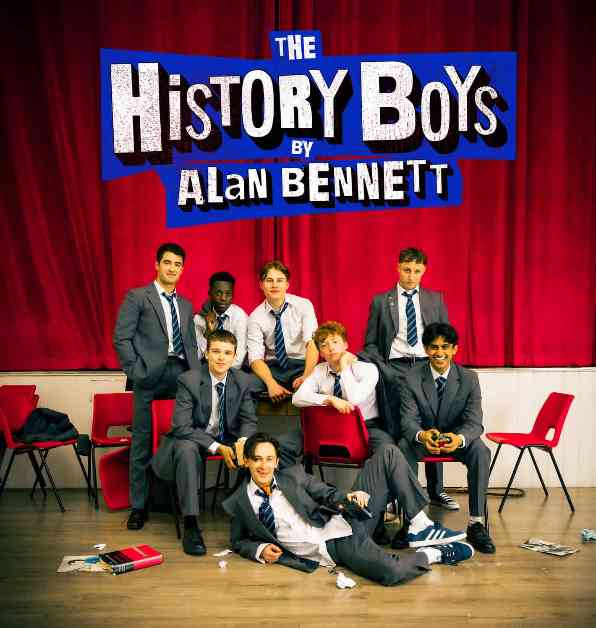The History Boys at Theatre Royal Plymouth: A Review of One Plymouth’s Performance
The year is a nebulous time in the mid-to-late eighties, and a group of history pupils at a grammar school are being primed to attend OxBridge. Their teachers, though, all possess different styles: Hector adores knowledge for knowledge’s sake; Felix, their headmaster, wants league table results, and so hires; Irwin, who has a detached and impersonal view on history.
Boys will be boys is the infamous saying – sometimes to much dispute – but The History Boys shows the tumultuous nature of growing up in education, not just devil-may-care masculinity. Our teachers are intended to guide us, but how do we develop free – and supposedly correct – thinking when they’re pulling us every which way, each one claiming that they’re in the right?
Ever since The History Boys first premiered onstage in 2004, productions have chased to achieve the same chemistry that the original cast did. In Seán Linnen’s production, that goal was certainly achieved. Movement director Chi-San Howard did spectacularly from on-stage movement to in-character set changes, ensuring that each individualised character never dropped their charm.
I may as well list the entire programme now, as there was not one cast member that fell short or out of line from the others, and I struggled finding who exactly I wanted to look at. Teddy Hinde as the comical relief Timms had the audience laughing with his easy wit; Lewis Cornay played Posner with sweetness that had all eyes on him, whether he was acting as a prostitute in a French brothel or singing his heart out in dedication to an indifferent Dakin, accompanied in song by Yazdan Qafouri as Scripps on the piano.
The History Boys was well-known for marking the start of many of its actors’ theatre careers – Samuel Anderson, Sacha Dawan, and Stephen Campbell Moore, to name a few – and Linnen’s production does the same. This run is Mahesh Parmer and Archie Christoph-Allen’s (as Akthar and Dakin respectfully) on-stage debut, and yet you wouldn’t know it. The ease in which they play these boyish characters suggest they’ve been at this for some time.
For this performance, Jolyon Young stepped into the role of Hector as Simon Rouse’s understudy, making the character a familiar figure we might remember from our own schooling, and lifting him above the play’s main source of controversy.
Is the indifference – and most of the time, humour – faced towards Hector’s fondling of his charges a sign of the times? Certainly. But to this reviewer it is important to keep in mind that this is not a play written in, about, or to the standards of our current year of 2024 – it was written twenty years previous in the spirit of the social climate Bennett was familiar with; the playwright himself has confessed he was ‘interfered with’ as a child. When safeguarding wasn’t as strict, the attitudes towards assault in schools inflicted by teachers onto students – physical and sexual alike – were equally blase. In this way, The History Boys provides a looking glass to a time further-back – and, if there is one good thing to be taken from the light-hearted dealings of mentors with wandering hands, it is clear in this play that the boys retained their autonomy, power, and peace of mind, which cannot be said about all survivors of sexual abuse.
All-in-all, this run of Bennett’s The History Boys is a fresh success, interspersed with head-nodding, foot-tapping, jukebox-musical-like breaks into eighties songs. Though, on occasion, these breaks felt more awkward than anything – moments such as Hector’s disciplinary action for his misconduct could have been accompanied with more gravity.
Nonetheless, these progressions were made on account of breathing new life into this well-cherished and acclaimed play, where culture such as film and media, race, and religion is already frequently touched upon, and I applaud any production that has the gusto to do so.
Theatre Review by our Theatre Reviewer Jonah Zalick #OnePlymouth

